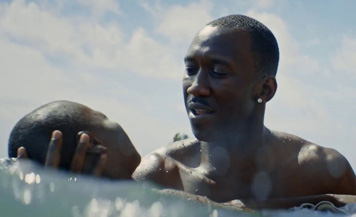They Shoot Oscar Prognosticators, Don't They?
Post-Mortem: The Watershed Oscars
By J. Don Birnam
March 2, 2017
The Historic Reversal of Fortunes
From the perspective of Oscars history and statistics, Moonlight’s victory was pretty historic. Moonlight lost the SAG Ensemble, the DGA, the PGA, the BAFTA and still won Best Picture. When did that last happen? Simple: Never. Braveheart, in the first year of SAG, did not get a SAG ensemble nomination and lost the other nominations en route to a Best Picture triumph, but no one had ever managed to be nominated for all of them and lose them all. And needless to say, thematically, no movie about gay characters or directed by an African-American person ever won Best Picture.
La La Land’s defeat was no less unprecedented. Only Brokeback Mountain won as many precursors (the same as the musical) and then lost Best Picture. La La Land did it while managing to still net a whopping SIX Oscars, doubling Brokeback’s total.
But the really stunning aspect of its defeat is how the roles were, in a way, reversed. Sure, Gravity just recently had won seven Oscars, including Best Director, and the PGA and DGA, and then lost Best Picture to 12 Years a Slave. The difference in the situations is obvious. When Slave won, the more-daring, innovative movie (Gravity) won a lot of Oscars only to fall to a much safer movie with a much more traditional narrative and structure. The same is true of Brokeback Mountain losing to the much safer Crash, or The Revenant to a much safer Spotlight, etc.
This time around, La La Land would have been the obvious safe choice - a familiar and innovative movie with a familiar and touching story, one no one could object to. Instead, the easy movie is the one that saw itself net the most precursors only to fall short, ceding the space to a movie that while not particularly daring or dangerous, was sure to raise eyebrows in certain corners of the populace.
A New Era of Racial or Political Movies?
So why did this happen? The easy - but likely incorrect - answer, is that this happened because of #OscarsSoWhite. They are voting for a “black movie” simply out of “guilt” for the shaming they suffered the last two years. This theory is preposterous on several levels. First, Moonlight, a story about a young man’s life, is no more a racial movie than, say, Boyhood. To accuse the Academy of race obsession while racially-obsessively equating a movie where the central character is of one race to necessarily being a “racial” or “message” movie is ironic.
Nor is it logical to think that the voters react like this. On the contrary, Moonlight arguably won in spite of #OscarsSoWhite, with Academy members resisting the natural impulse to stay the course in the face of what is a deeply misguided critique of them.
More logically, Moonlight benefited from a combination of factors that may indeed portend a permanent evolution to the way the Academy thinks - augured in, ironically, by the very two heroes that did so in 1967 when they teamed up for the-then watershed Bonnie and Clyde. Quite simply, the Academy decided it was high time to look beyond itself.
Continued:
1
2
3




